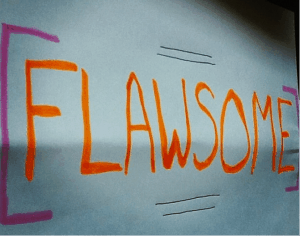 Today, the sentiment by many an American is to Boycott Rolling Stone. Is that the same reaction by its 20-something readership?
Today, the sentiment by many an American is to Boycott Rolling Stone. Is that the same reaction by its 20-something readership?
That publication put the Boston Bomber on its cover looking sultry and sexy. Why?
It’s said the editors/publishers put that teenager in the demographic of its readership and thus the publication owed it to (whom?) to cover the topic. In its defense, the magazine did say the kid became a monster on its cover albeit in small print.
The Rolling Stone PR Faux Pas
What exactly is the faux pas of Rolling Stone? It’s abiding by rights granted by the U.S. Constitution and the Bill of Rights; freedom of speech in this regard.
What then did Rolling Stone do to piss of America?
It took an emotional issue oriented to terrorism against this country and portrayed it unerringly on the cover of its well- read and highly subscribed to-popular magazine.
Sure enough, Rolling Stone created a global PR crisis for itself. Prior to Rolling Stone publishing its cover, editors and publishers had weeks to prepare for the backlash that would and did inevitably result.
They developed messaging; they consulted lawyers; they trained; they wrote statements for public consumption; they readied the flood gates. They knew it; they ignored it; they welcomed it.
Now, media the likes of Dayton Daily News, a small community paper catering to less than 1 million, are running the story and cover to capitalize on the debacle. Of course, that’s how the gravy train works. Blood sells, after all.
How many Facebook posts did you read yesterday that are anti-Rolling Stone? Did traffic increase exponentially to its website to the point of busting the server?
The magazine didn’t care; it wanted this attention knowing full well the emotional upheaval would come and pass. Knowing full well the teens and 20-something readers and potential subscribers would devour the coverage and buzz about it on their social channels, too.
The outcry against the choice Rolling Stone made to exonerate a soon-to-be-convicted terrorist against the United States of America is just.
What’s unjust are the lives and limbs lost and horrific emotional upheaval as a result of the crimes perpetuated against the Boston marathoners, spectators and this country’s citizens.
In this case, Rolling Stone went too damn far. No act of terrorism should be regarded as opportunistic by media pushing the envelope of public dissent to see just how far it can go.
I customarily applaud corporations for testing waters and planning a publicity stunt for 10 minutes of fame. In this case, that magazine disgusts me for its obvious lack of sensitivity. Please, corporate America, withdraw your advertising spend and put it toward funds for victims of the Boston Marathon. They need help to regain a semblance of normalcy in a life disrupted. Please, corporate America, your customers will thank you.
(Jayme Note: This piece is not for me to capitalize; I rarely write about such things when they occur, e.g. Paula Deen. In this situation, I couldn’t rest.)













